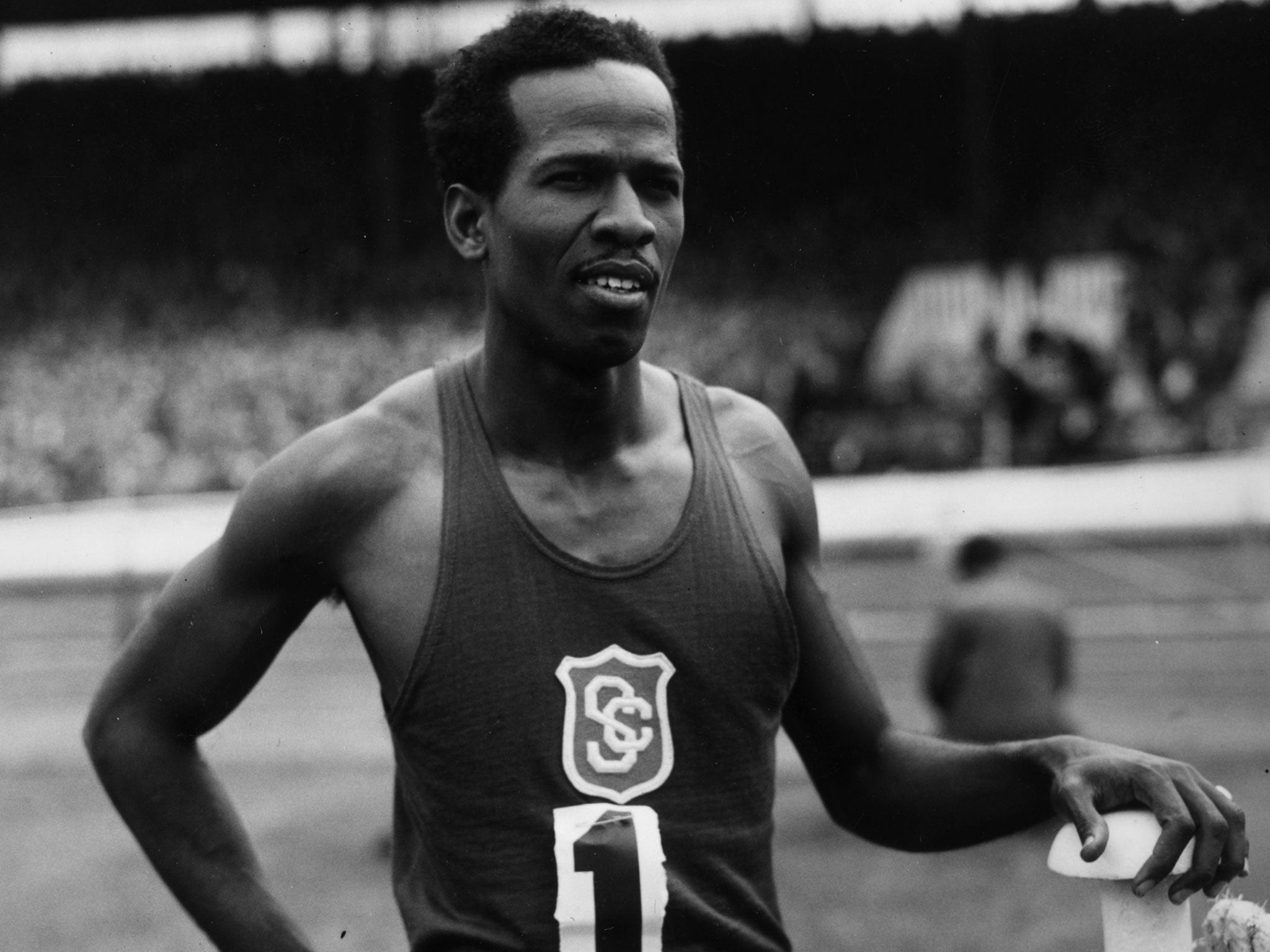McDonald Bailey: Athlete
Olympic sprint bronze medallist who achieved unwanted fame through one game of rugby league

Your support helps us to tell the story
From reproductive rights to climate change to Big Tech, The Independent is on the ground when the story is developing. Whether it's investigating the financials of Elon Musk's pro-Trump PAC or producing our latest documentary, 'The A Word', which shines a light on the American women fighting for reproductive rights, we know how important it is to parse out the facts from the messaging.
At such a critical moment in US history, we need reporters on the ground. Your donation allows us to keep sending journalists to speak to both sides of the story.
The Independent is trusted by Americans across the entire political spectrum. And unlike many other quality news outlets, we choose not to lock Americans out of our reporting and analysis with paywalls. We believe quality journalism should be available to everyone, paid for by those who can afford it.
Your support makes all the difference.McDonald Bailey was a high-class sprinter in the middle years of the 20th century who later achieved a different sort of fame on the basis of one game of rugby league.Born in the memorably named village of Hard Bargain in Trinidad, he was a champion schoolboy sprinter, who chose, as the rules on colonial athletes permitted, to run for Great Britain. He was to dominate the 100 and 200 metres in his adopted country, seven times achieving the double of winning over both distances at the Amateur Athletic Association Championships.
At the 1948 London Olympics he finished last in the 100m final but in Helsinki four years later won bronze in a blanket finish, recording the same time of 10.4 as the runners who finished first and second. Perhaps most impressive, in Belgrade in 1951 he equalled the world record of 10.2 set by Jesse Owens in 1936. It was a record that lasted into the 1960s.
Bailey competed at a time of draconian regulations on amateurism and twice ran into conflict with the AAA. One case concerned his endorsement of a brand of starting blocks; the other was over a training manual, If It’s Speed You’re After. The AAA suspended him over the second infraction, though he won an appeal.
But in July 1953 Bailey took the sensational step of signing to play rugby league for Leigh. He was 32 and he had played no rugby of any kind, but Leigh clearly hoped his pace alone would be enough to make him a success. His signing-on fee was reported at the time as being £1,000, plus two further instalments of £1,000 based on appearances. He was to come nowhere near claiming those extra payments.
Bailey’s famous single appearance was in a specially arranged game against Wigan in the December, the degree of interest demonstrated by a crowd of 14,996 at Hilton Park, a handsome turn-out for a friendly. Leigh won 11-3 and even contrived to lay on a try for Bailey, but it was obvious to anyone, himself included, that he was completely lost on the rugby pitch. Two months later he announced his retirement.
Thus ended one of the shortest careers in the history of the game, but it was not quickly forgotten. For a couple of decades and more the BBC’s rugby league commentator, Eddie Waring, was still reminding viewers about him, and the name of the Trinidadian Flyer is still invoked whenever a club signs an athlete with no experience of rugby, most recently when Dwain Chambers was taken on trials by Castleford.
Bailey was accepted back into athletics, to a degree, when he coached the Trinidad and Tobago team at the Tokyo Olympics in 1964. Later he and his wife, Doris, ran a successful restaurant in Port of Spain. He remains one of the greatest athletes to be produced by that now independent nation, although the fact that he ran for Britain has sometimes denied him his due of recognition. Whenever a rugby league club makes a fanciful, headline-grabbing signing that is destined to end in tears, however, the name of McDonald Bailey is forever remembered.
Emmanuel McDonald Bailey, athlete and rugby league footballer: born Williamsville, Trinidad 8 December 1920; married Doris (two sons, three daughters); died Port of Spain, Trinidad 4 December 2013.
Join our commenting forum
Join thought-provoking conversations, follow other Independent readers and see their replies
Comments